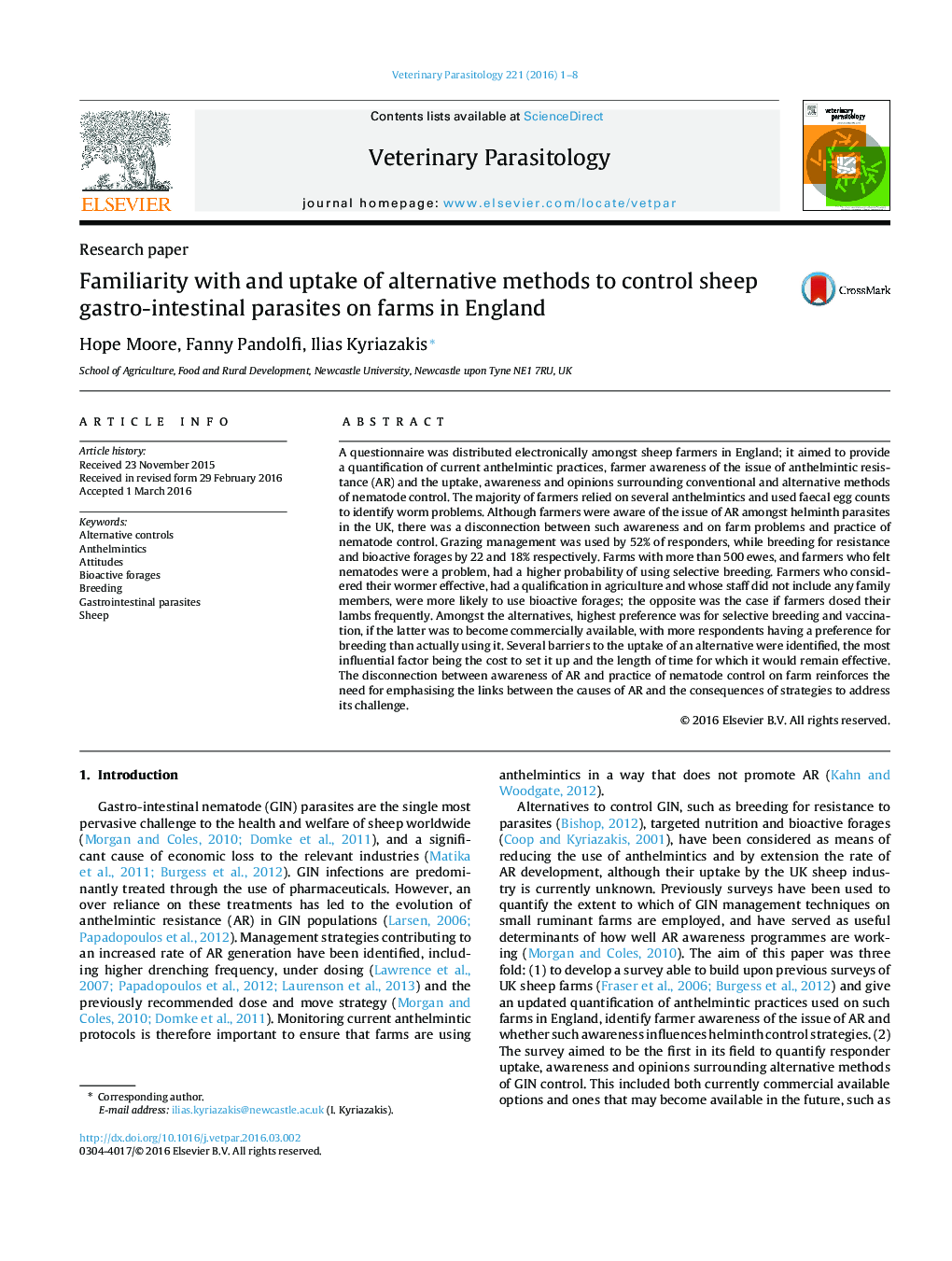| کد مقاله | کد نشریه | سال انتشار | مقاله انگلیسی | نسخه تمام متن |
|---|---|---|---|---|
| 5802180 | 1555655 | 2016 | 8 صفحه PDF | دانلود رایگان |
- A questionnaire was distributed electronically amongst sheep farmers in England.
- It aimed to identify views about nematode control methods, including alternatives.
- Farmers disconnected anthelmintic resistance from the practice of control.
- Barriers to the uptake of alternative controls were identified.
- Most influential barriers were the cost and time length it would remain effective.
A questionnaire was distributed electronically amongst sheep farmers in England; it aimed to provide a quantification of current anthelmintic practices, farmer awareness of the issue of anthelmintic resistance (AR) and the uptake, awareness and opinions surrounding conventional and alternative methods of nematode control. The majority of farmers relied on several anthelmintics and used faecal egg counts to identify worm problems. Although farmers were aware of the issue of AR amongst helminth parasites in the UK, there was a disconnection between such awareness and on farm problems and practice of nematode control. Grazing management was used by 52% of responders, while breeding for resistance and bioactive forages by 22 and 18% respectively. Farms with more than 500 ewes, and farmers who felt nematodes were a problem, had a higher probability of using selective breeding. Farmers who considered their wormer effective, had a qualification in agriculture and whose staff did not include any family members, were more likely to use bioactive forages; the opposite was the case if farmers dosed their lambs frequently. Amongst the alternatives, highest preference was for selective breeding and vaccination, if the latter was to become commercially available, with more respondents having a preference for breeding than actually using it. Several barriers to the uptake of an alternative were identified, the most influential factor being the cost to set it up and the length of time for which it would remain effective. The disconnection between awareness of AR and practice of nematode control on farm reinforces the need for emphasising the links between the causes of AR and the consequences of strategies to address its challenge.
Journal: Veterinary Parasitology - Volume 221, 15 May 2016, Pages 1-8
